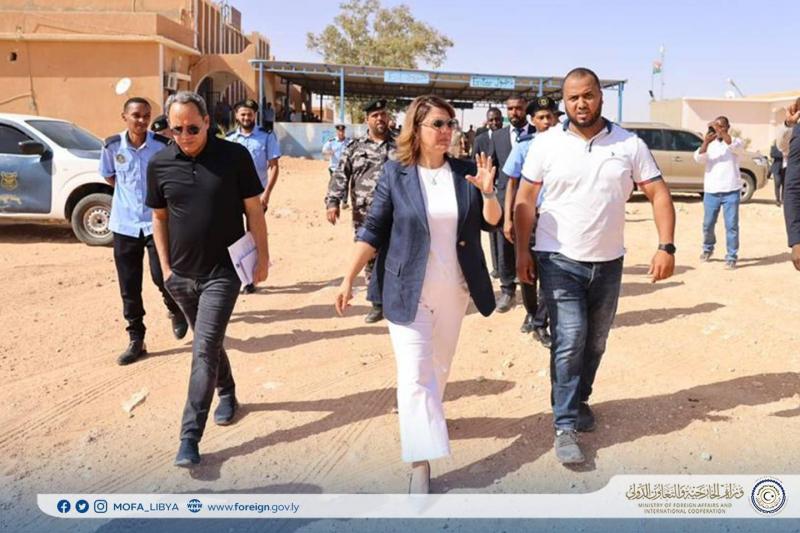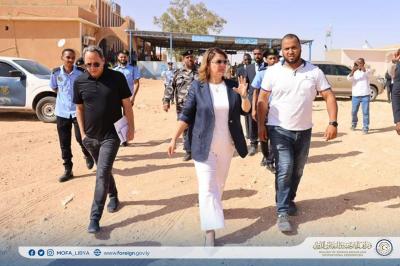Following a tweet from the Israeli government spokesperson—later deleted—about a meeting between Israeli Foreign Minister Eli Cohen and his Libyan counterpart in Italy last week, Libyan unity government head Abdulhamid Dbeibah announced the provisional suspension of Foreign Minister Najla Al-Mangoush and referred her for investigation. He temporarily assigned Youth Minister Fathallah Al-Zani to run the Foreign Ministry.
The Foreign Ministry confirmed its "full commitment to national constants regarding the issues of the Arab and Islamic nations, primarily the Palestinian cause, and its adherence to Jerusalem as the eternal capital of Palestine, a firmly established position with no retreat." In a statement on their website, the ministry asserted that Minister Al-Mangoush rejected any meetings with representatives of the Israeli entity and remains steadfast in this position in accordance with the principles of the Libyan unity government and the deep-seated sentiments of the Libyan people.
According to the statement, what occurred in Rome was "an unplanned and informal accidental meeting during a session with the Italian Foreign Minister" and did not involve any discussions, agreements, or consultations. It added that Al-Mangoush clearly affirmed Libya's constants regarding the Palestinian cause in a way that is unequivocal and not open to interpretation.
The Libyan Foreign Ministry categorically denied "any exploitation by Hebrew and international media and their attempts to portray the incident as a meeting or talks or even a preparation or mere consideration of holding such meetings."
The announcement of this meeting sparked a wave of protests in Libya, demanding the minister's removal from her position, with several individuals demonstrating outside the Foreign Ministry building in the capital, Tripoli.
In the same context, the Speaker of the House of Representatives called for a session today, Monday, to discuss the repercussions of Al-Mangoush's meeting with the Israeli Foreign Minister.
The meeting has prompted controversy because Libya does not officially recognize Israel, and there is widespread public support for the Palestinian cause. Palestinians seek to establish an independent state on the territories occupied by Israel during the 1967 war. The dispute over the meeting has intensified the political crisis in Libya, giving opponents of Dbeibah an opportunity to criticize him amid questions regarding the future of his interim government.
Libya remains without a stable central government since the overthrow of Muammar Gaddafi in 2011. Some major factions do not recognize Dbeibah's interim government, which has been in power since 2021, and there is increasing political momentum to replace it with a new administration aimed at conducting national elections.
Late Sunday, Al-Mangoush's office attempted to quell the anger in the country, stating that she had rejected a request for an official meeting with Cohen but that they met during "an unofficial incidental meeting not previously arranged during a session with Italian Foreign Minister Antonio Tajani."
However, the Israeli official questioned this narrative, stating, "The meeting was coordinated at the highest levels in Libya and lasted nearly two hours. The Libyan Prime Minister sees Israel as a potential bridge to the West and to the U.S. administration." A second Libyan official indicated that Dbeibah asked Italy to arrange the meeting in hopes of gaining stronger U.S. and international support for his interim government, expressing concern that international support is weakening or disappearing.
Since 2020, Israel has normalized relations with the UAE, Bahrain, Morocco, and Sudan as part of the so-called "Abraham Accords," mediated by the United States.




